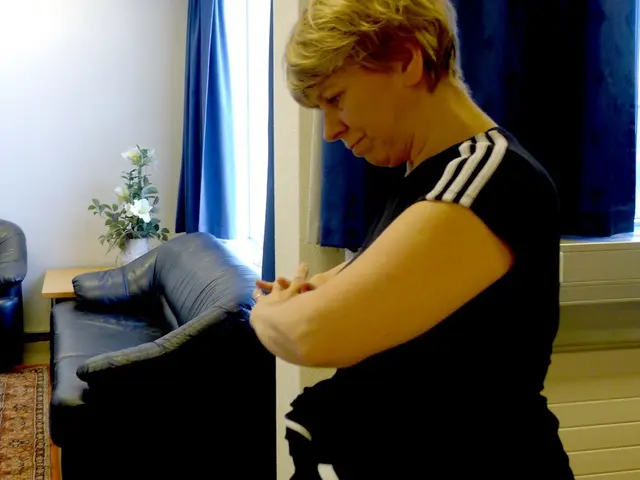Chronic sleep deficiency substantially increases the chance of developing dementia by nearly twofold.
Neglecting good sleep is a common oversight for successful aging, yet it's crucial. As we spend a third of our lives snoozing, sleep is a valuable time for the brain to eliminate toxins, construct memories, and restore those parts responsible for learning and independent functioning. Falling short on sleep can cause substantial issues.
Lack of sleep can disrupt these essential processes and potentially lead to significant problems, such as the increased risk of dementia and mortality. In a recent study from Brigham and Women's Hospital, older adults reported with sleep deficiencies were at an increased risk for dementia and death.
How much sleep should we get?
As age advances, the required sleep amount changes. According to the National Sleep Foundation, healthy adults need between 7 to 9 hours per night. The study found that those who slept less than 5 hours a night were twice as likely to develop dementia, compared to those who got 7-8 hours.
Dr. Rebecca Robbins, the lead author of the study, stated that "Our findings illuminate a connection between sleep deficiency and risk of dementia and confirm the importance of efforts to help older individuals obtain sufficient sleep each night."
Dr. Robbins and her team utilized data from older adults participating in the National Health and Aging Trends Study, which has been collected annually since 2011. Sleep questionnaires from 2013-2014 included questions about sleep disturbance and deficiency. Information was also gathered about patient outcomes from any cause for up to five years after the survey.
Overall, it was found that delaying sleep onset by 30 minutes or more was associated with a 45 percent greater risk for incident dementia. Difficulty in maintaining alertness, napping regularly, and sleeping less than 5 hours a night were associated with an increased risk of death.
The study revealed that sleep deficiency, with the average age of participants being 76 years old, was associated with double the risk of incident dementia and total mortality over the next 4-5 years.
This research highlights the importance of sleep for brain health and the need for further research on treating sleep disorders and improving sleep patterns to reduce the risk of Alzheimer's disease.
Tips to battle sleep deprivation
While sleep medication might seem like an easy solution for seniors, it's recommended as a last resort. That's because these drugs can pose unique risks for older populations. Seniors tend to be more sensitive to the effects of these drugs and they stay longer in their bodies. Medication side effects include an increased risk of falls, hip fractures, car accidents, and next-day drowsiness, confusion, constipation, dry mouth, and problems urinating.
Over-the-counter sleep aids can also cause concerns, such as next-day drowsiness, confusion, and constipation. A more natural approach could involve consuming chamomile tea, known for its long-standing reputation for better sleep and other beneficial effects. However, consuming large amounts of chamomile tea for an extended period of time could potentially interfere with blood-thinning medications.
It's essential to consult a healthcare provider if on any medications, as combinations can sometimes disrupt sleep.Other recommendations to improve sleep include sticking to a routine, controlling bedroom temperature, exercising during the day, setting up a pre-bedtime ritual, getting checked out, and avoiding large meals, caffeine, and alcohol before sleep.
While implementing these recommendations, be mindful not to overlook other essential aspects of brain health, such as consuming essential brain nutrients. Make sure you're not making common mistakes with your diet! Click here to learn more
Sources:
Nightly sleep of five hours, less, may increase risk of dementia, death among older adults - Eurekalert!Why we sleep one-third of our time - TechnologistDo seniors need less sleep? - WebMDCDC and sleep disorders - CDC.govInsomnia and Anxiety in Older People - Choosing Wisely
- Proper sleep is essential for maintaining brain health, especially in old age, as it contributes to the elimination of toxins, memory construction, and restoration of learning and independent functioning parts of the brain, and insufficient sleep can potentially lead to dementia and mortality.
- According to a study from Brigham and Women's Hospital, older adults who get less than 5 hours of sleep per night are twice as likely to develop dementia compared to those who sleep 7-8 hours, highlighting the importance of sufficient sleep for brain health in the aging population.
- Besides following a sleep routine, controlling bedroom temperature, exercising during the day, and setting up a pre-bedtime ritual, it's crucial to be aware of combinations of medications that may disrupt sleep and to avoid large meals, caffeine, and alcohol before sleep to promote better brain health and sleep quality.








